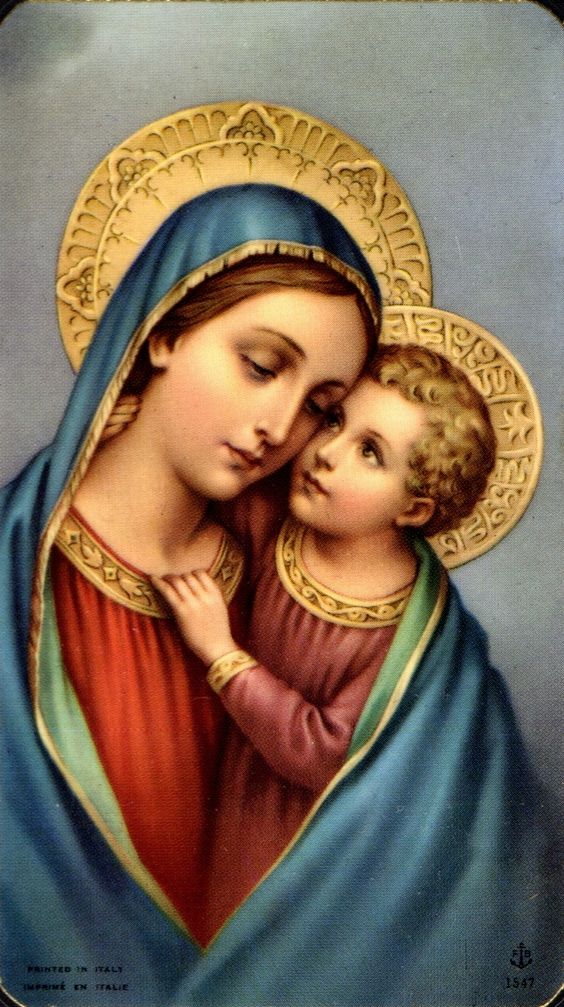The Queen: Editorial: The Fullness Of Time
Fr. J. Patrick Gaffney, SMM
The Fullness Of Time
“The Greeks have a word for it”, so the saying goes.
This expression can surely be applied to the New Testament whose original, inspired language is Greek. In fact, some of these Greek terms of the Scriptures are really incapable of being adequately translated into English. A good example of this situation is the word time. When Jesus tells us in the Gospel of Mark, that “the time is fulfilled,” when the Letter to the Ephesians speaks of God’s plan taking place in “the fullness of time,” the inspired word for time is difficult, if not impossible, to put into English.
Biblical Greek has two terms for time: chronos and kairos. Chronos is easily grasped by us practical Westerners; its emphasis is on clock-time, the time of the day. When someone says that the workday is from 9:00 A.M. to 5:00 P.M., it is chronos which is being stressed. (Notice that our English word chronology – the listing of the precise time when events took place – comes from the Greek chronos.)
Yet, when Jesus says that in Him “the time is fulfilled,” when the Letter to the Ephesians declares that God’s eternal plan in Christ takes place in “the fullness of time”, the word for time is not chronos but kairos. The stress is not on clock-time, the time of the day. Rather, kairos generally emphasizes the quality, the meaning, the opportunity which is within the clock- time, the chronos. Every passing tick of chronos is also a kairos for it is a moment in which God’s saving offer of Himself is present. An offer calling for a response from us.
God’s Decisive Moment
We could say that kairos is the right time, the decisive moment. Its use in English can be seen in such expressions as; “It’s not the right time to talk to our son,” or “It’s the right time to ask for a raise”. Time in these expressions is not primarily the time on the clock but the quality, the opportunity, the meaning within the present moment; the right time, the kairos.
When Jesus says that “the time (kairos) is fulfilled”, He is telling us that He is “the right time” of the Father. No matter how often the hands of the clock may turn, Jesus alone is the “right time,” the “decisive time” of the Father. He is the fullness of time. He is the fulfillment of the Father’s plan for us. There is no more right time in God, for Jesus is the fullness of His offer of Himself.
Yet since this right time of God, this fulfillment of His plan in the Incarnation of His Wisdom, takes place at a specific moment which can be dated.
Paul uses the term chronos – stressing history, clock-time – when he tells us in Galatians 4:4 that “when the time had fully come, God sent His Son, born of a woman”. The fulfillment of God’s plan takes place at a specific moment in our history. The kairos of the Father is manifested in our chronos. Jesus, the decisive moment of the Father, is personally disclosed at a specific moment in the chronology of human history.
Mary is United Then, to this Fulfillment of God’s Plan
And this “fullness of time” occurs in Mary! It is because of her “Yes” spoken at a moment in our history (chronos), that the decisive fulfillment of the Father’s plan (kairos) takes place. Mary is indissolubly united then, to this fulfillment of God’s plan, she is integral to the “fullness of time.”

Editorial
From time to time, The Queen will republish Editorials or create new Editorials on various topics.
For at a moment in our history, at the sound of Mary’s “Yes,” the right-time has arrived for God to implement His eternal plan of salvation through the Incarnation of the Word. Mary is at the very center, therefore, of the mystery of salvation. It is in her, through her, that the fullness of the time of the Father has come.
It is through her “Yes” that every passing moment of the clock is filled with God’s loving call to enter more deeply into His life in Christ Jesus the Lord.
Return to The Queen: Articles
Pope John Paul, following the pattern set by Vatican II, begins his Marian Year encyclical, Mother of the Redeemed, by situating Mary within this “fullness of time” (cf. #1-11). “This fullness,” says the Holy Father, “indicates the moment fixed from all eternity when the Father sent His Son. . . it denotes that blessed moment when the Word … became flesh … it marks the moment when the Holy Spirit … formed in [Mary’s] virginal womb the human nature of Christ.
This fullness marks the moment when, with the entrance of the eternal into time, time itself is redeemed . . . and becomes definitively ‘salvation time’ ”.
The Holy Father, like the inspired authors, is intermingling both chronos and kairos when speaking about “the fullness of time.” For at a moment in our history, at the sound of Mary’s “Yes,” the right-time has arrived for God to implement His eternal plan of salvation through the Incarnation of the Word. Mary is at the very center, therefore, of the mystery of salvation. It is in her, through her, that the fullness of the time of the Father has come. Both the chronos, the climactic moment of our clock-history, and the kairos, the decisive moment, the right-time for the fulfillment of God’s eternal plan, take place in her. It is through her “Yes” that every passing moment of the clock is filled with God’s loving call to enter more deeply into His life in Christ Jesus the Lord.


